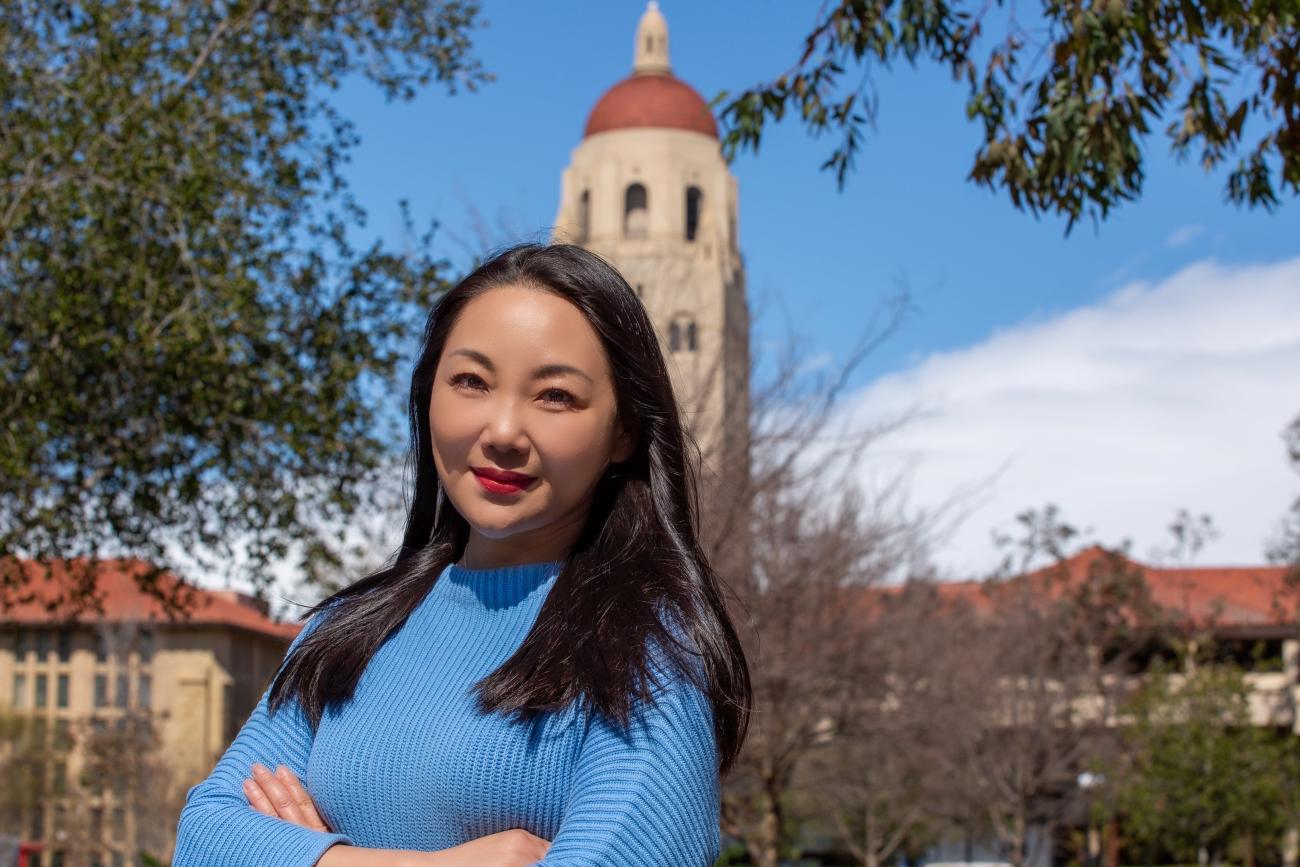
Joy Chen, the GSE’s new Entrepreneur in Residence, creates a bridge between education and business
Joy Chen, the 2023 Entrepreneur in Residence (EIR) at Stanford Graduate School of Education (GSE), says that her journey into the business of education has inspired her to be bold, take risks, and embrace uncertainty — characteristics she hopes to impart on the next generation of thought leaders.
“I really want students to carry bigger dreams,” said Chen, the fourth EIR and first woman to be in the role since the GSE established the initiative five years ago. “I don’t want them to be intimidated by how big a goal can be, but to have more confidence in themselves.”
Launched in 2018, the EIR program brings an experienced entrepreneur to Stanford’s campus for a year or more to offer mentorship and guidance to the GSE community. Chen, who began her residency on March 1 of this year, will hold the role until June 30, 2024.
Chen is a longtime pioneer in the educational entrepreneur space who founded and led First Leap, an education company that taught English to students in China. The company was later acquired by TAL Education Group, a Chinese company offering tutoring and after school education for students in primary and secondary school. She then joined TAL as U.S. chief investment officer and global executive advisor, where she oversaw strategic partnership development, investments, and mergers and acquisitions.
She has also served as a senior advisor for GSV Ventures, a venture fund that invests in education and workforce skills technology, and was a member of the 2015 Stanford Executive Education Program cohort at the Stanford Graduate School of Business. She has a master’s degree in instructional systems technology from Indiana University, and a doctorate in education from the University of Southern California.
As EIR, she hopes to leverage her expertise to create a bridge between GSE students and the businesses they will one day inform, support, and start themselves.
"We need to have someone connect what those in academia are working on with what those in the business community are working toward,” Chen said. “As EIR, I see myself being a road to support this kind of communication and understanding so both groups can work together to reach shared goals.”
Chen will also collaborate with the Stanford Accelerator for Learning (SAL), a university-wide initiative advancing the science and design of learning. “We’re super excited to work with Joy on a number of activities that will help our students and faculty connect their research with the real world,” said Isabelle Hau, executive director of SAL.
The Stanford Lemann Center for Educational Entrepreneurship and Innovation in Brazil, a center based at the GSE to support Brazil’s education system, also appointed two of its own EIRs this year: Claudio Sassaki, MA/MBA ’03, co-founder of the Brazilian edtech firm Geekie; and Eduardo Mufarej, an entrepreneur, investor, philanthropist, and former GSE fellow who has founded several companies, including Somos Educação, a K-12 education company, and Good Karma Partners, a partnership focused on the impacts of education, health care, and climate in Latin America.
New this year, the GSE is launching a discussion series through the EIR program that will feature Chen, Sassaki, Mufarej, and past EIRs Sergio Monsalve and Andre Nudelman, among others, as panelists. The first event, on June 7, will dive into the challenges, opportunities, and implications of AI in education technology.
“The people who serve as EIR are board members of education companies, so they’re insiders who can let students and faculty in on what they’re working on, their pain points, and the innovations being thought up,” said Paul Kim, associate dean and chief technology officer at the GSE. Kim and Monsalve, the GSE’s first EIR, are credited with coming up with the EIR program.
“The discussion series will allow another avenue for students and faculty to sit at the table with those already navigating the education industry,” Kim said.
If Chen could give one piece of advice to future leaders in the field, it would be to be patient and passionate.
“In the education business we’re more focused on learning outcomes than on profit, so just expect that this is going to be a slow and challenging but rewarding career,” she said. “Taking the long view is key, so make sure advocacy is your first priority.”



